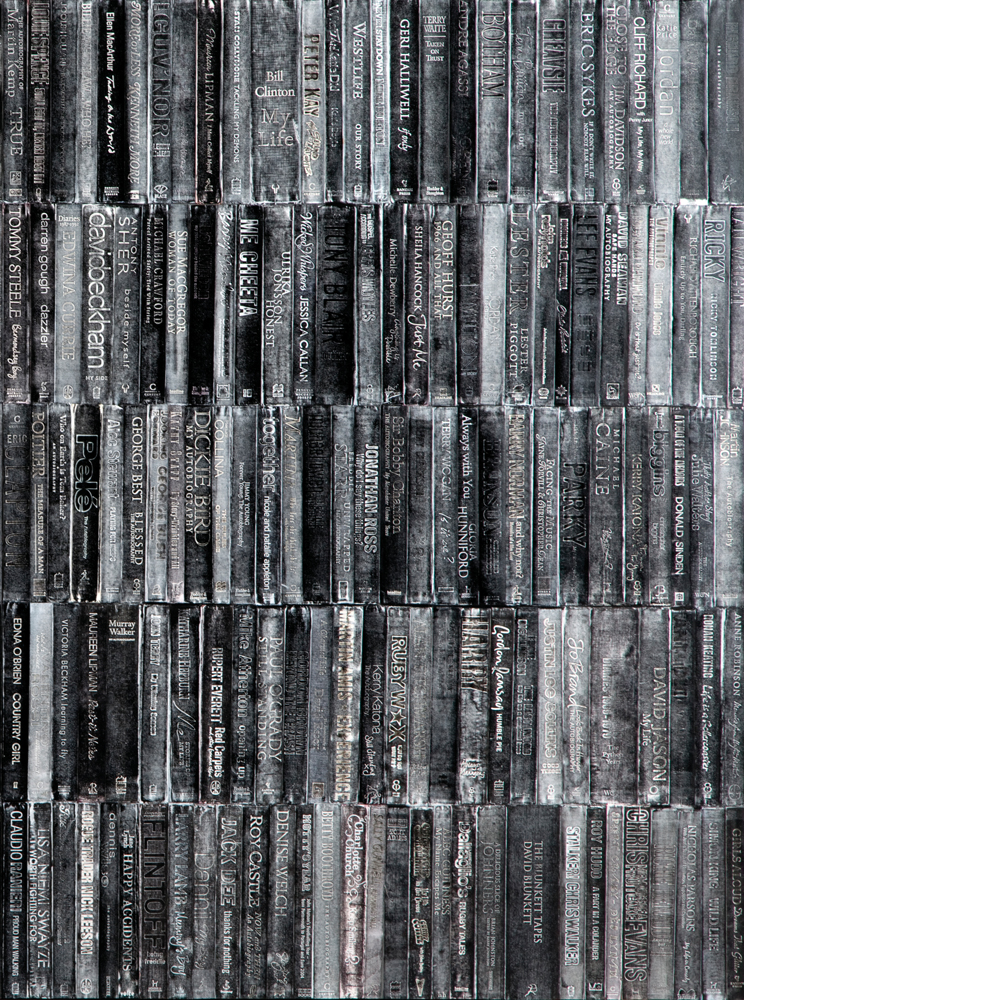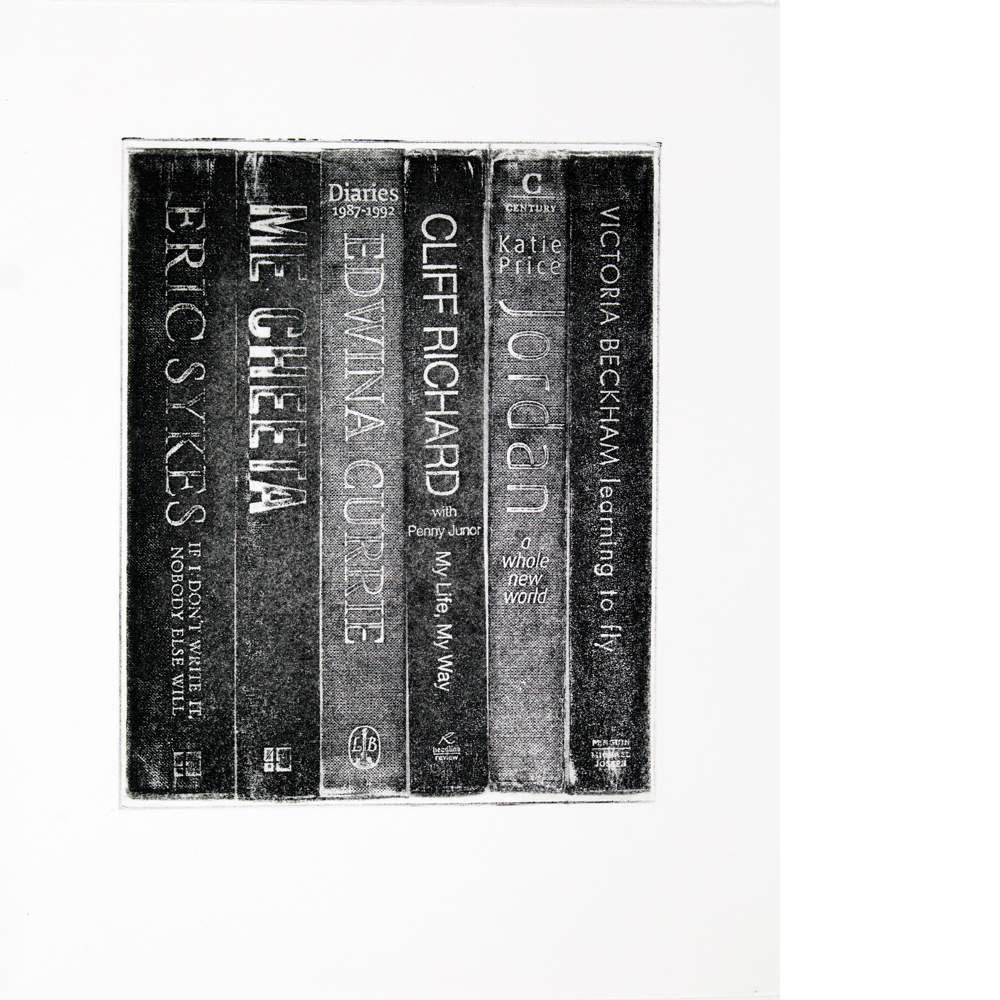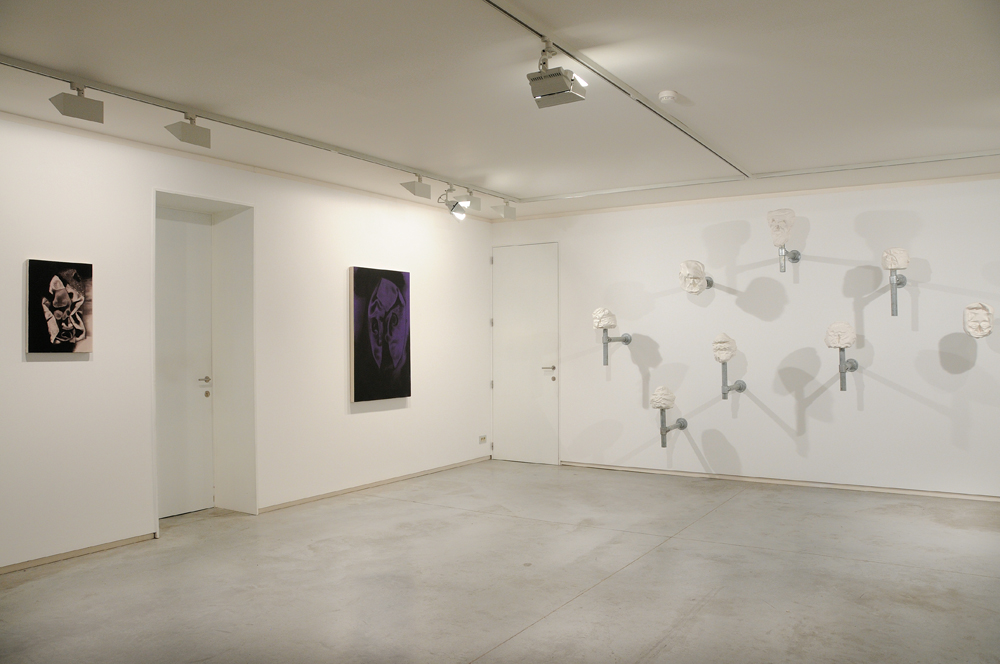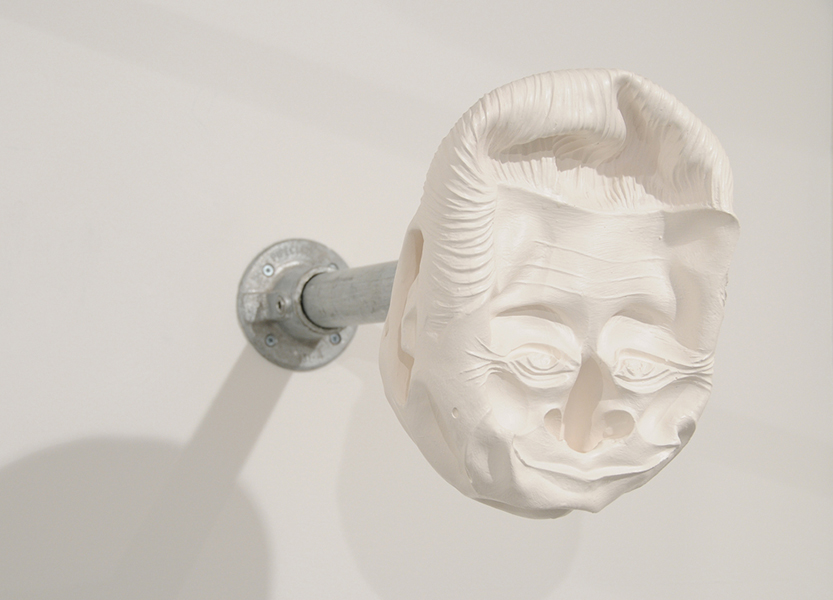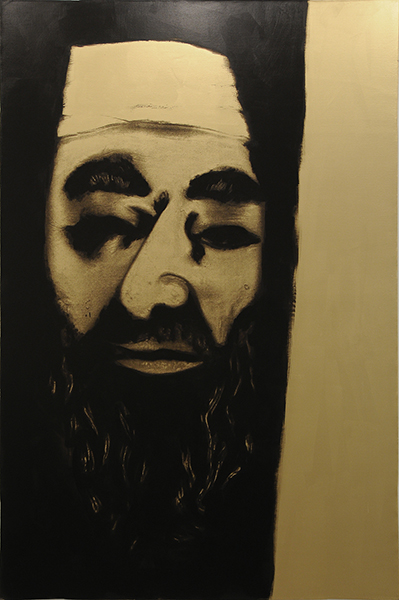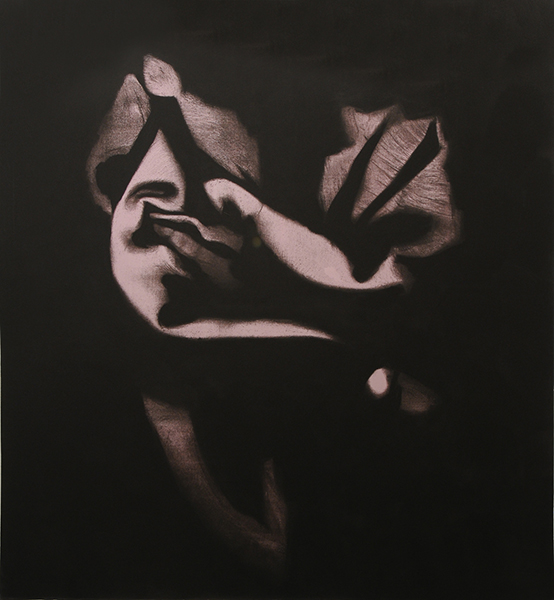Leigh Clarke
SMARTPHONES!! please click on the picture to REDUCE the SIZE of the pictures
Leigh Clarke
(°1973, England)
A Higher Cannibalism
The title of this solo exhibition by the artist Leigh Clarke is borrowed from Rudyard Kipling who described the process of psychoanalysis as ‘ The Higher Cannibalism’. The project will exhibit new works generated from over 500 popular autobiographies bought in charity shops that Clarke has collected, dissected and altered to make digital prints, etchings, screen prints and collages.
On mass, the collection and combination of the spines confront the viewer with a visual registry of role models that shape contemporary Britain society and question the consumption of popular autobiographies in times of austerity. Clarke plays with the scale of the book spines to measure the importance of celebrity and who is worthy or unworthy of an autobiography. In his method of appropriation, he treats each autobiography spine equally with paint and printing ink, resulting in monochromatic picture plains that remove hierarchies and status. The exhibition is perfectly located in the CRATE project space, which is an old print works in the centre of Margate.
Leigh Clarke is engaged in a multidisciplinary print practice that employs mass manufactured objects or mass disseminated text to make singular political statements. His concern with public engagement has led him to curate projects at Lokaal 01 in Breda, The London College of Communication and Extrapool in Nijmegen. In 2012 he was selected for the London Open at the Whitechapel Gallery where he exhibited 30 plaster casts on scaffold poles of the negative spaces within political latex fancy dress masks. In 2014 he took part in a major residency project In Stoke-on-Trent hosted by Airspace Gallery and funded by the Arts Council England and the Esme Fairbairn Foundation. This summer he has been commissioned to work with Create London to generate alternative maps for the River Lea in the East End of London. Clarke is a Senior Lecturer in Printmaking and Illustration at the London College of Communication and Printmaking Tutor at the Royal Academy Schools.

3 works, ‘Thanks for nothing’ ‘Forever Young’ ‘Looking for trouble’, 2015, collages of book spines with printing ink and acrylic on board, 120 x 90 cm /each (x3)

‘My Journey Back to Life’, 2015, digital vinyl print, 780 cm x 90 cm – view of the installation at CRATE Proect Space, Margate, UK

exhibition view, 5 collages ‘That’s another story’ ‘Love lipstick and lies’ ‘Blessings in disguise’ ‘One step beyond’ ‘Seize the day’, 2015, collages of book spines with printing ink and acrylic on paper, 65 x 47 cm /each
Leigh Clarke creates singular, provocative statements using mass manufactured, multiple objects. His main source of recent research is in latex, political masks that he acquires through the Internet, ranging from Ayatollah Khomeini, Fidel Castro, Nicolas Sarcozy and Hilary Clinton. Through a process of reprographic manipulation, the images generated through squashing, folding and scanning the masks reveal shadowy, abstracted portraits that oppose the original function of the object.
The artist then offers a more confrontational experience to the viewer by casting his discoveries 3-dimensionally at human scale. By stripping the mask of it’s intended irony and satire, Clarke reveals hidden truths about how we read images of political figureheads through the media. His understanding of comedy through his own performance work enables him to expose the serious, often dark, creative foundations needed to make humor.


